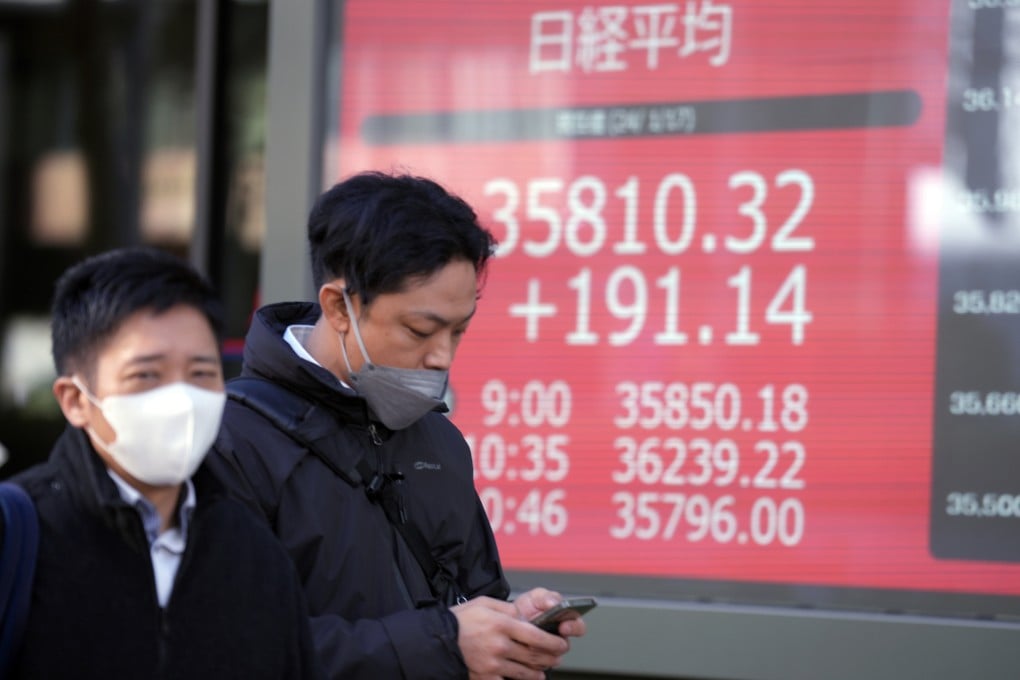Chinese traders ignore warning in chase for Japanese stocks, bidding ETF to daily limit of 10%
- China AMC Nomura Nikkei 225 ETF rose to the daily limit of 10 per cent on Wednesday after a one-hour suspension on Tuesday
- Investors may suffer ‘serious consequences’, fund manager warns, as they seek refuge in Japan’s booming market from a local stock rout

Chinese investors have ignored a warning from the issuer of the largest onshore exchange-traded fund (ETF) tracking the Japanese market, bidding the fund higher as they chase gains in the stocks.
The China AMC Nomura Nikkei 225 ETF rose to the daily limit of 10 per cent after trading resumed at 10:30am local time. The shares were suspended for an hour after the fund traded at a 9.5 per cent premium over its underlying net assets on Tuesday, which triggered caution from the fund’s manager.
“The transaction price in the secondary market is significantly higher than the reference net value of fund shares, resulting in a substantial premium,” China Asset Management said in a statement. “If investors invest blindly, they may suffer serious consequences.”
Turnover in the China AMC Nomura ETF soared to a record 4.8 billion yuan (US$668 million) on Tuesday.